Covid Deaths Continue to Mount
Meanwhile, a report states that a Trump admin official pushed infections to promote herd immunity.
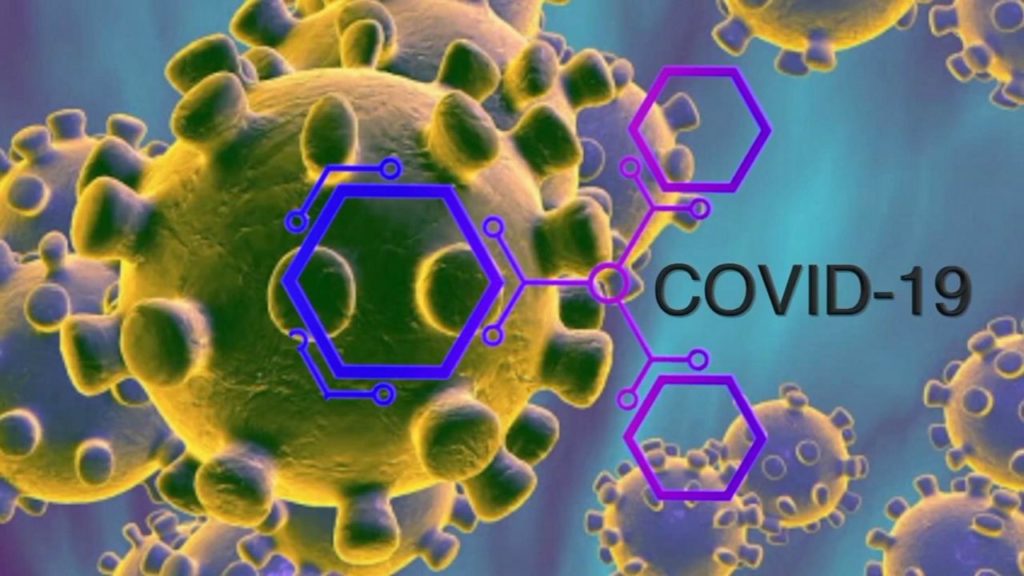
The death toll in the US from Covid-19 on December 16 was 3,486. That is higher that the death toll on 9/11 by 490. The seven-day rolling average is 2,562. If that pace remains steady (and sadly trend line is not flat, bur upward) we will be past 350,000 deaths by New Year’s Eve. Note that we hit 250,000 just a month ago.
All numbers from Worldometers.
I remember a lot of skeptics asking, “where are the deaths?” when the cases started to grow. It is true that we have gotten better at treating the disease. It also true that death is a lagging indicator and that more cases were inevitably going to lead to more death.
This is, as I have repeatedly noted, not just the flu. This is especially problematic since we are heading into the prime holiday season with family gatherings, parties, church services, and the like on the horizon for which it appears a lot of people will not be avoiding.
These trends are not encouraging:


All of this is in the context of the failed response to the pandemic by the Trump administration. To take a simple example, how many lives could have be saved if there had been a concerted effort from the White House to encourage mask-wearing even six months ago? Or what if Trump had signaled that large gatherings were a means of spreading to be avoided, instead of holding rallies, huge press events, and parties?
And into that mix we have the following from Politico: ‘We want them infected’: Trump appointee demanded ‘herd immunity’ strategy, emails reveal.
“There is no other way, we need to establish herd, and it only comes about allowing the non-high risk groups expose themselves to the virus. PERIOD,” then-science adviser Paul Alexander wrote on July 4 to his boss, Health and Human Services assistant secretary for public affairs Michael Caputo, and six other senior officials.
“Infants, kids, teens, young people, young adults, middle aged with no conditions etc. have zero to little risk….so we use them to develop herd…we want them infected…” Alexander added.
[…]
Alexander was a top deputy of Caputo, who was personally installed by President Donald Trump in April to lead the health department’s communications efforts. Officials told POLITICO that they believed that when Alexander made recommendations, he had the backing of the White House.
“It was understood that he spoke for Michael Caputo, who spoke for the White House,” said Kyle McGowan, a Trump appointee who was CDC chief of staff before leaving this summer. “That’s how they wanted it to be perceived.”
HHS denies that this was policy, but
Rep. Jim Clyburn (D-S.C.), who chairs the coronavirus subcommittee, said in a statement that the documents “show a pernicious pattern of political interference by Administration officials.”
“As the virus spread through the country, these officials callously wrote, ‘who cares’ and ‘we want them infected,'” Clyburn added. “They privately admitted they ‘always knew’ the President’s policies would cause a ‘rise’ in cases, and they plotted to blame the spread of the virus on career scientists.”
At a minimum the administration certainly acted indifferent to spread (Trump himself would lament how testing led to cases), making all this all sound quite credible as being influential over policy. It certainly is a window into some of the discussions taking place in the administration.
The email cache provided a real-time look at the administration’s deliberations as the Covid-19 crisis first began to rebound during the summer.
“So the bottom line is if it is more infectiouness [sic] now, the issue is who cares?” Alexander wrote in a July 3 email to the health department’s top communications officials. “If it is causing more cases in young, my word is who cares…as long as we make sensible decisions, and protect the elderely [sic] and nursing homes, we must go on with life….who cares if we test more and get more positive tests.”
“How can this be researched and proven true or false?” Caputo asked Alexander in one July 25 email exchange, after Alexander had emailed Hahn and nine top communications officials across HHS and FDA about the value of herd immunity.
Alexander wrote back with data that he said he’d pulled from several studies, including a link to a June 30 Quanta Magazine article about the “tricky math” of herd immunity.
“I did not want to look like a nut ball and if as they think and as I think this may be true … several hard hit areas may have hit heard [sic] at 20% like NYC,” Alexander added. “[T]hat’s my argument….why not consider it?”
Because herd immunity requires a substantial level of infection (70% to 90%) and at a 1.8% mortality rate (based on today’s numbers) would mean an awful lot of death. (Not to mention that lingering effects of the disease that have been reported and that we currently do not understand).
The whole piece is worth a read.

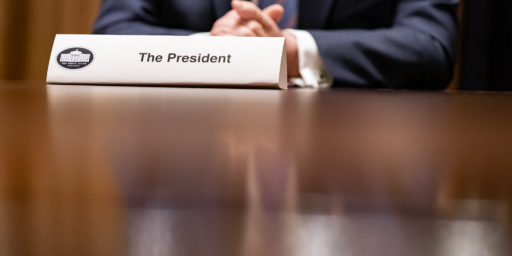
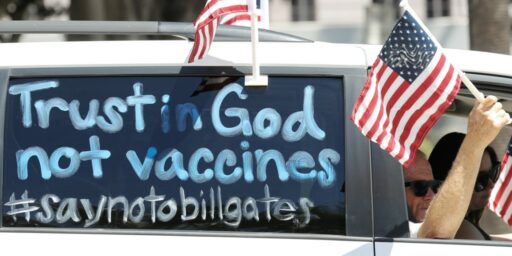
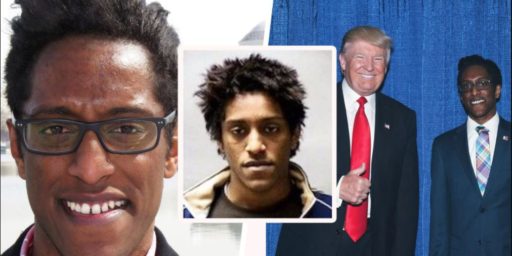

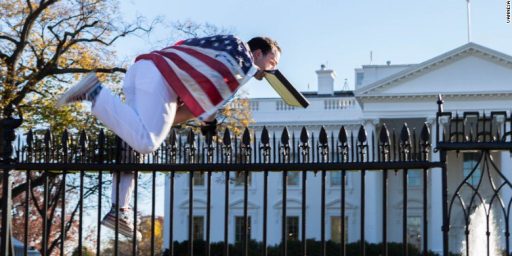
Dr. K had a piece at NYT a day or two ago making the point that Republican analysis always starts with the answer they want. Trump wanted to run on doing nothing about COVID and son of a gun, look what their analysis showed. Dr. K also makes the point that this tendency hardly started with Trump.
I was just discussing this with a couple of scientist buddies. In 2 1/2 weeks we’re going to be over 4,000 Covid deaths per day.
But if you go to the creationist websites like Uncommon Descent, Trump is single-handedly responsible for the record breaking vaccine, and without him it couldn’t have happened.
I find it baffling that we know how to ameliorate the effects of SARS-CoV-2, we’ve seen numerous countries keep cases, hospitalizations, and deaths down, and literally billions of people simply don’t give a damn.
The other day I caught a video of when Trump first spoke on the recommendation to wear masks. He read it from a note, and stressed that it was voluntary “you don’t have to do it.” He then stated he wouldn’t wear a mask. And recall when he was still interested in appearing at COVID briefings there was no social distancing at all.
I’ve run out of analogies and comparisons. Except for one: It’as though a deadly pathogen were spreading exponentially, and people all knew how to slow the spread but choose not to.
At 70% infection and 1.8% fatality rate we’d have four million dead. At 90% infection we’d have nearly 5.4 million dead. And they were willing to do that for what? The economy? Did they think the economy wouldn’t collapse if we started losing 20,000 people a day? And of course we must remember “the economy” is a proxy for “Trump’s re-election chances.”
Let’s just call this what it is: evil. Sacrificing four or five million people on the altar of Wall Street and Trump’s political fortune is evil.
@Kathy:
Indeed, that was bothering me back in March: Social Distancing and the White House.
They had no interest in even the simple stuff.
@Steven L. Taylor:
If a picture is worth a thousand words, an example is worth a million.
And a bad example is an example.
@Kathy: Yup.
I’ve been wondering. If they really wanted “herd immunity,” and to have as many infections as possible to bring it about quickly, then why didn’t take any real active steps towards that goal? They only obstructed health recommendations, and made a hash out of preventive measures. That doesn’t go nearly far enough.
Republican governors, and Trump for that matter, could have outlawed masks in public, including businesses and workplaces. Viruses are cultured for research and testing purposes, I’m sure there exist large amounts of SARS-CoV-2 in plenty of labs, Why not take that supply, or even make a bigger one, and spray it over cities, inside office buildings, etc.?
BTW, herd immunity is real. If enough people in a given population are immune to a pathogen, it can’t spread easily among that population.
Get a high enough percentage of immunity worldwide, and you can eradicate the pathogen, make it go extinct. This is not easy, and has only been accomplished with smallpox (polio might go next).
The crucial point, which today’s proponents of herd immunity solutions overlook, is that such immunities as we enjoy today were achieved entirely by the use of vaccines, not by exposing people to pathogens.
consider that uncontrolled outbreaks of smallpox, bubonic plague, measles, polio, etc. occurred again and again throughout history, before effective prevention measures were developed or understood, and thus infected many exposed people. But none of these outbreaks made for herd immunity.
In part it’s because you cannot expose all the people to a pathogen. On the other hand, you can vaccinate everyone over time, and add immunity through vaccines to every new human being over the first years of their life (who are kept safe from most diseases by those who were vaccinated before them).
So we’ll get herd immunity, possibly temporary due to the nature of this virus, but not until sometime in 2021 when enough people are vaccinated. And then maybe we’ll need to re-vaccinate everyone every year.
@Kathy:
Because an upfront strategy to achieve ‘herd immunity’ would have required the courage to own the result.
No one tried a true herd immunity approach. The UK started on it but quickly saw deaths rise too rapidly. As part of the herd immunity approach, go back and read the Barrington Declaration, they advocated that we take actions to protect those at risk. One problem with that approach is that we dont know how to do that. No one does. The only approach which has worked to protect those at risk is to reduce risk for everyone.
On a side note, we still dont have enough testing material to test patients or staff. I am unable ergo get my staff tested when they are exposed about half of the time due to inadequate supplies (reagents mostly). In our area they are not testing asymptomatic people. Hard to stop the spread if we dont know who is infected and if we arent going to place limits on activities or wear masks.
Steve
@Scott F.: A problem, indeed–the only guy who says “yeah, I did it, and I’d do it again, too, if I had to” is the one who ends up being judged not competent to stand trial.
I had a minor epiphany today while confronting a covidiot at work.
Perhaps the whole lack of compliance with social distancing and masks and gatherings, comes down not to defiance or denial, but simply that many people, when confronted with the facts of COVID-19 transmission and effects, simply don’t believe it.
There was a science radio show, later a podcast, I listened to for a few years. The host, Enrique Ganem, often said of Special Relativity: You won’t find it hard to understand, you’ll find it hard to believe. He went on to say the effects of relativity are so far removed from ordinary experience, it’s difficult to imagine them, and we have never experienced them so we’d notice.
Can it be something like this? After all, we can’t see the virus, and we’re not used to catching anything serious (“blame” vaccines for that). Serious disease is cancer, or heart disease, or AIDS, and so on, not a cough and a fever.
I’m not saying they think or say “I don’t believe in COVID!” though some invariably do, rather they know it’s so, but they can’t feel it is so. Kind of what I said about death the other day. We all know we’re all going to die someday, but few can really grasp that. We don’t really believe it.
this doesn’t explain every last covidiot. there are other things, like misunderstanding odds, straight denial, and so on. But the world would be a much nicer place if the problem were a psychological quirk rather than malice or depraved indiference.